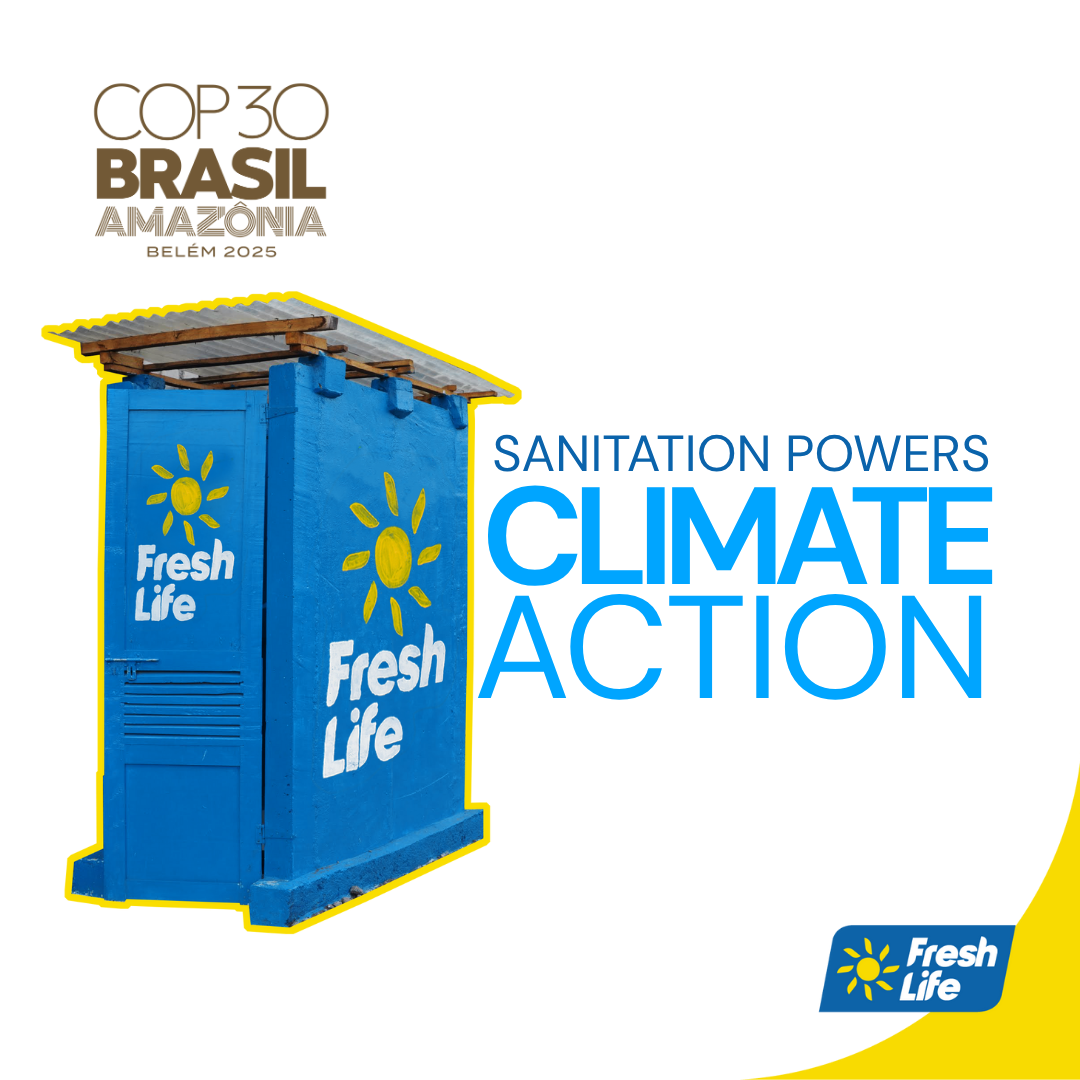 As the world convenes in Belém, Brazil for COP30, the conversations continue to interest the world – individuals, communities, institutions and governments alike. Ambitious targets, bold debates and urgent calls for practical solutions that impact the people and the planet.
As the world convenes in Belém, Brazil for COP30, the conversations continue to interest the world – individuals, communities, institutions and governments alike. Ambitious targets, bold debates and urgent calls for practical solutions that impact the people and the planet.
For millions living in Africa’s fast-growing cities, the climate crisis is not abstract. It’s a daily reality of unpredictable floods, water scarcity and fragile infrastructure that can’t keep up.
The hidden climate challenge
One of the biggest, often overlooked challenges? Safe sanitation. In informal neighborhoods, conventional toilets and sewers are out of reach and when heavy rains hit, pit latrines overflow contaminating homes, waterways and drinking water sources, while polluting ecosystems that communities depend on. Sanitation and climate change reinforce each other and as a result communities are constantly faced with health and climate risks.
Untreated human waste releases methane as it decomposes – a greenhouse gas that is 84x more potent than CO₂ over 20 years. Yet, the nexus between sanitation and climate change is not always a front row discussion and neither is it atop most people’s minds. Non-sewered sanitation accounts for 4.7% of global anthropogenic methane – approximately 377 million tonnes of CO2e per annum!
Fresh Life remains at the forefront of this climate adaptation and mitigation war. We put sanitation at the heart of climate resilience and climate action. Our waterless, container-based toilets are designed for the toughest urban environments: built above-ground and flood-proof to withstand erratic weather patterns; and waterless – making them suitable for water scarce contexts while saving billions of litres of water. In communities across Nairobi, Kisumu, Eldoret and Lusaka, Zambia, families now have access to dignified sanitation that stands strong through storms and drought.
Through shallow containers that create an aerobic environment (or simply put – a high-oxygen environment), and frequent emptying of waste, the Fresh Life Toilet significantly reduces methane production. Talk of a simple solution that has super co-benefits!
And yes, the process does not end there. Our circular economy model further recycles this waste into regenerative agricultural products using aerobic, biological processes. This process ensures that the waste is safely treated, keeps valuable nutrients in the food chain, and offsets 30,000 tons of carbon dioxide equivalent (over 1000 tons of methane) annually!
A Conference of Parties Call to Action
As the world gathers for COP30, Fresh Life is showing that climate solutions don’t have to be distant or high-tech to be game-changing. They can be local, practical and deeply connected to daily life. By rethinking sanitation, we’re cutting emissions, protecting water sources and building urban resilience from the ground up.
The 2021 Global Methane Pledge aims to cut global methane emissions by at least 30% by 2030. With 2030 knocking, the world has only 4 years to deliver on this promise.
As global leaders continue to address the climate crisis at COP30, our key learning is that climate action has to move beyond pledges. It has to support and finance systems and innovations that truly work for the people and the planet, everywhere while also significantly contributing to broader Sustainable Development Goals.
We are proof of impact and real transformation.

